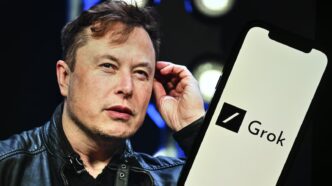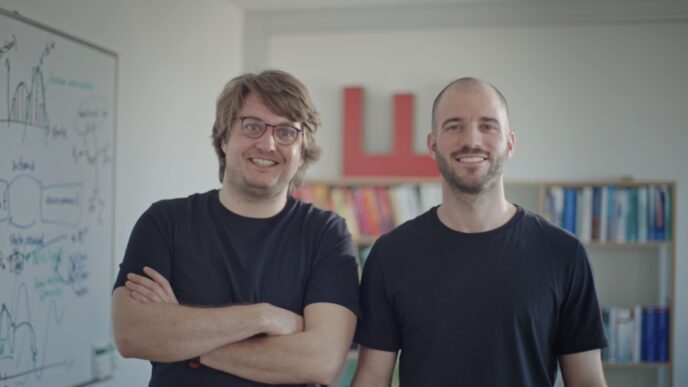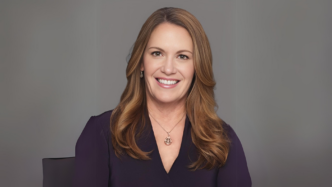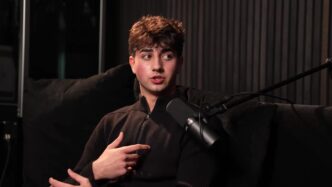Elon Musk’s AI company, xAI, is facing a trademark dispute over the name “Grok,” the chatbot it launched last year. The U.S. Patent and Trademark Office (USPTO) has already suspended xAI’s trademark application. Citing potential confusion with names from two other companies: AI chipmaker Groq and software firm Grokstream. Now, a third tech startup, Bizly, claims it has the rightful claim to the name. And says the conflict has pushed it to the edge of collapse.
Bizly’s founder, Ron Shah, says he coined the name “Grok” back in 2021 during a brainstorming session. Inspired by the verb commonly used in tech circles to mean “to understand,” Shah trademarked the name and started building an AI-powered live events app under the same brand.
Then came the shock.
In 2023, when Musk announced his own AI chatbot Grok, Shah woke up to dozens of messages from friends congratulating him. Mistakenly assuming his startup had been acquired by xAI. “It was a day I’ll never forget,” Shah told WIRED. “It was a complete shock to me.”
The Grok trademark dispute shares parallels with other naming controversies involving Musk. Just last month, X (formerly Twitter) settled a lawsuit with a marketing firm that claimed rights to the “X” brand. Musk has also run into branding issues with his brain-computer interface company Neuralink. Which has filed pending trademarks for the terms Telepathy and Telekinesis—both of which may be too descriptive to qualify under USPTO rules.
In Bizly’s case, the situation is more nuanced. Shah claims he applied to trademark “Grok” two years before xAI used it. But under U.S. law, trademark protection depends not only on filing but also on use in commerce. Owners must show their mark is actively being used to sell products or services in at least two states.
At the time Musk announced xAI’s chatbot, Bizly’s Grok app was still in beta, piloting with financial services firm Carta. The product hadn’t yet officially launched, which could complicate Shah’s ability to enforce the trademark. USPTO regulations allow early-stage founders to file an “intent to use” trademark—but full registration requires proof the product is being sold commercially.
Still, Shah insists xAI’s use of the name infringes on his mark and derailed his business. He says Bizly had spent $2 million building Grok, was about to close a funding round, and was preparing to launch when xAI’s announcement scared off investors. “Our funding round collapsed once Mr. Musk announced his use of the mark,” he wrote in an email to xAI attorney Robert Keele. “We are on the verge of company shutdown and need to recoup the damages in order to survive.”
Shah says he offered to partner with or sell the trademark to xAI, hoping to resolve the situation amicably. But so far, he claims no one from Musk’s company has responded to his messages. He hasn’t sent a formal legal demand letter, fearing the high cost and risk of challenging a company backed by one of the world’s richest men. “Who am I to go legal with the richest man in the world?” he asked.
Trademark lawyer Josh Gerben, who runs a law firm specializing in trademarks, told WIRED that trademark law is less about protecting business names and more about avoiding consumer confusion. He emphasized that whether Bizly has a strong case depends on several factors: “What does the original Grok do, and what does this new one do? Are they operating in the same channel of trade?”
Adding to the complexity, Musk has claimed that the name Grok comes from the 1961 sci-fi novel Stranger in a Strange Land by Robert Heinlein, where “to grok” meant a deep, almost spiritual form of understanding. That origin is widely cited in tech culture, and Musk has said the term fits the goals of his chatbot.
Interestingly, Musk’s ex-partner Grimes also applied to trademark “Grok”—but for a very different purpose: a plush AI-powered toy for kids. According to legal experts, the differing product categories could reduce the risk of consumer confusion in that instance.
For Shah and Bizly, though, the consequences have been far more real. What began as an exciting startup journey built around a name he believed in has now become a legal and financial struggle for survival. Whether xAI chooses to fight, settle, or rebrand remains to be seen—but for one founder, the damage may already be done.













